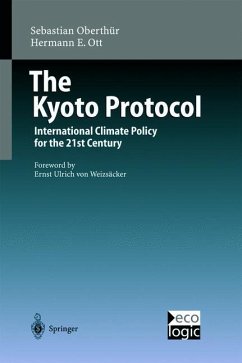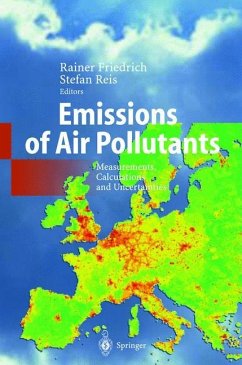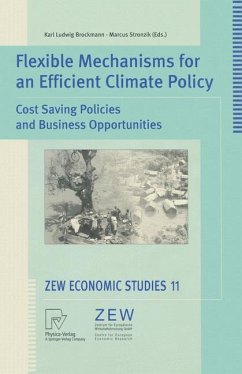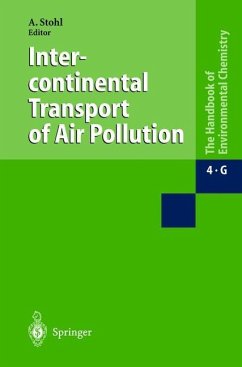
Beyond Kyoto - A New Global Climate Certificate System
Continuing Kyoto Commitsments or a Global ´Cap and Trade´ Scheme for a Sustainable Climate Policy?
Übersetzung: Dalton-Stein, H.; Wittgrebe, R.
Versandkostenfrei!
Versandfertig in 1-2 Wochen
115,99 €
inkl. MwSt.
Weitere Ausgaben:

PAYBACK Punkte
58 °P sammeln!
This balanced analysis presents news from the 'climate-protection front'. On the down-side, neither the current 'Kyoto-Protocol' Climate Protection System with (legally binding) commitments by major countries to reduce or limit their greenhouse gas emissions nor various proposals for improving the commitment system are capable of meeting the ultimate objective 'to prevent dangerous anthropogenic interference with the climate system'. On the up-side, by implementing the GCCS, it appears that the ultimate climate protection objective quoted can be achieved, that developing and newly industrialized countries can be integrated into the protection system by installing a 'fair system' based on the democratic principle of 'one man - one climate emission right', and that no industrialized nation nor its consumers of fossil fuels will be overburdened. Just like all proposed climate-protection schemes, extremely high hurdles will have to be overcome when implementing the GCCS. However, thanks to its important merits and its structural elements, there exists still a small chance that mankind will manage to prevent dangerous climate change.
This book shows how humankind can 'prevent dangerous interference with the c- mate system' without dangerous interference with the global economic system. In the two underlying studies on behalf of the Ministry of Environment and Transport of i the German federal state of Baden-Württemberg, the results have been elaborated through scientific evaluation of different climate protection systems and intensive developmental work on an efficient climate protection system. The results will be presented in nine chapters according to the following nine basic R&D steps: 1. Quantifying the 'ultimate climate objective' of the world community in order 'to prevent dangerous interference with the climate system,' thus achieving climate sustainability; 2. Development of a comprehensive standard system for evaluating the prospect of success for different climate protection systems; 3. Based on this scientific standard system, evaluation of the current Kyoto system and of the most important proposals for 'incremental regime evolution' of the Kyoto system. Unfortunately, it must be noted that these systems are incapable of achi- ing climate sustainability; 4. Evaluating three proposals for 'structural regime change' of the Kyoto system. Following this objective evaluation process and numeric comparison of the diff- ent proposals, 5. Description of the eight basic elements of GCCS and its in-depth 'critical asse- ment;' 6.














